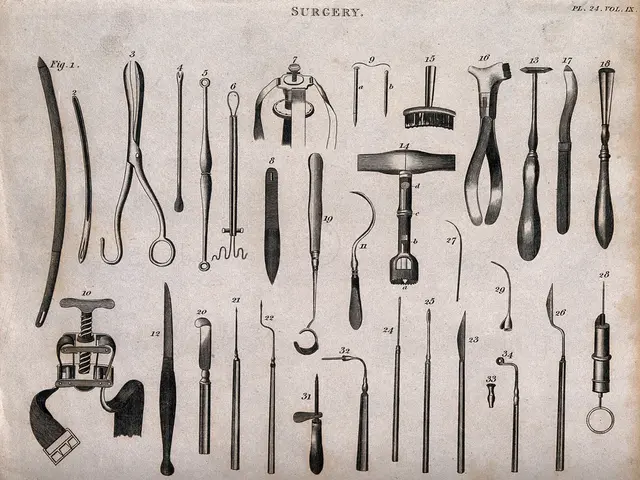Navigating the path of moving on from a past relationship: advice sought.
====================================================================
In a world where comparing new partners to exes is all too common, especially after long-term relationships, breaking free from this pattern is essential for fostering healthier, more meaningful connections. Here's a guide to help you navigate this process, as advised by Dr. Leben, a renowned psychologist.
Dr. Leben's advice comes in response to Cornelia B., a 46-year-old individual who, after an 18-year relationship with Martin (52), finds herself comparing every man she meets to her ex. Cornelia and Martin have a 17-year-old daughter together, and the breakup left Cornelia with unresolved feelings that linger in her current dating life.
Recognizing the Harm of Comparisons
Comparing yourself or your new partner to an ex distorts reality and reinforces negative feelings, making it harder to move forward. This comparison often stems from a need for closure, identity disruption, or seeking validation and control after the breakup, especially when the narrative feels incomplete.
Focusing on Self-Value and Personal Growth
To break free from this cycle, it's essential to centre your attention on your own healing and self-worth, not on how you measure up to or differ from your ex's new partner. By focusing on your personal growth and emotional well-being, you create the foundation for forming new, healthy relationships.
Allow Time for Emotional Processing
Avoid compulsively checking your ex's new relationships (e.g., on social media), which can deepen heartbreak and identity confusion. Give yourself time to process your emotions and accept that the past and future didn't turn out as desired. This acceptance creates space for new, healthy relationships and a more positive future.
Cultivate Openness to New Experiences
When you meet new people, try to experience the relationship without preconceptions shaped by past ones. Appreciate the present connection for what it is, rather than measuring it against your past experiences.
Repetition Compulsion and the Unconscious Mind
Repetition compulsion is a common problem in letting go, where one unconsciously tries to repair or repeat the past to heal old wounds. It might be connected to unmet needs from your childhood or adolescence, so it's crucial to work out how you want to see yourself in a man's eyes and what you want to give to a man.
Therapy and the Here and Now
Therapy can be helpful in reworking emotional "repertoire" and focusing on the here and now. By understanding the emotional patterns that make it difficult to let go of the past, you can work towards building healthier, more meaningful connections.
For further advice, please send an email to [email protected]. The editorial team has selected three questions for "Dr. Leben" to answer in the next issue.
In conclusion, breaking free from the pattern of comparing new partners to exes is a journey that requires self-awareness, patience, and a willingness to grow. By focusing on yourself, allowing time for emotional processing, and cultivating openness to new experiences, you can build healthy new partnerships based on mutual respect and present compatibility rather than past comparisons.
The process of moving away from comparing new partners to exes is crucial for fostering healthier relationships in the United States, as stated by Dr. Leben, a distinguished psychologist. This pattern can be harmful, reinforcing negative feelings and hindering progress.
To break free, it's important to prioritize self-value and personal growth, focusing on healing and self-worth, rather than comparing oneself to an ex.
Therapy can provide valuable assistance in this journey, helping individuals rework their emotional "repertoire" and focus on the present moment. This focus can help break the cycle of repetition compulsion, which often stems from unmet needs from one's childhood or adolescence.
Moreover, embracing a health-and-wellness lifestyle, including mental-health therapies and treatments, can further support personal growth and facilitate the formation of healthier relationships. This, in turn, can positively impact family dynamics and the overall quality of relationships.




